|
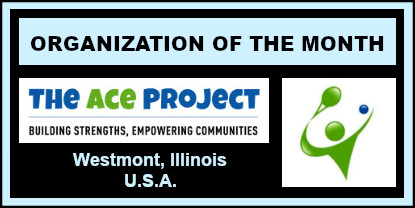 |
NOVEMBER
2019
BUILDING
STRENGTHS
EMPOWERING COMMUNITIES
|
abc |
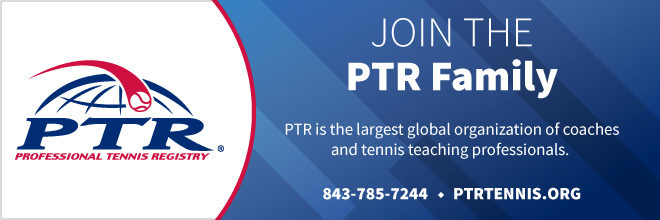
 |
ABOUT THE
ACE PROJECT
OUR MISSION
To nurture children living in underserved communities by building
character, confidence, and competency through the sport of tennis.
OUR VISION
To launch community-led collaborations that advance social and
economic justice.
WE BELIEVE
- Tennis has the ability to empower
children, families, and communities.
- All children should have access
to equitable resources and opportunities.
- Families are the backbone of
individual success.
- Community members inspire solutions.
- The contextualization of evidence-based
models will achieve short- and long-term outcomes.
- By creating opportunities for
program replication in underserved communities nationwide, we
progress social justice.
|
 |
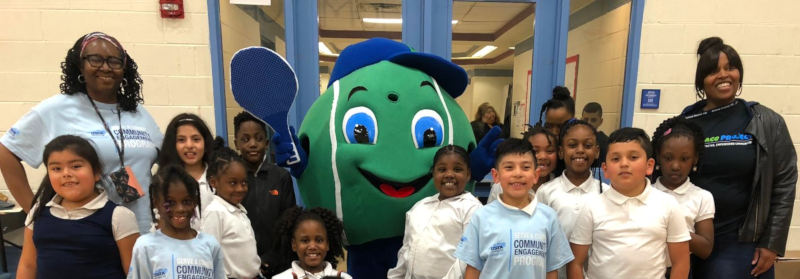
 |
QUESTIONS
FOR
SUSAN KLUMPNER
(Executive Director)
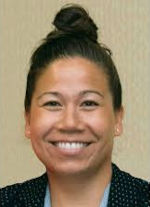 |
TCB: Where were
you born, Susan?
SK: Maywood,
Illinois.
TCB: How old
were you when you started to play tennis and who got you into
it?
SK: Growing
up, my father was a big fan of the sport; ordinarily a serious
man, I saw how tennis brought a smile to his face and joy to
his heart. We would play, on occasion, starting when I was 8;
however, it wasn't until that transitional time between middle
school and high school that I found my stride. Like any teenager,
I was anxiously awaiting the start of freshman year, so I decided
to take the lessons I learned from my dad on the court and develop
them further at the school summer camps. |
 |
 |
I owe a great
deal to Pete Freischlag, my high school coach, who helped ignite
my passion for the sport. He not only attended to the technical
aspects, strategy, and fitness necessary for success, he focused
on strengthening our mental fortitude, teamwork, and sportsmanship.
These skills greatly contributed to my future on and off the
court.
TCB: How did
your tennis career develop after college?
SK: Not unlike the time between middle school and high school,
the transition after college was difficult, as I struggled with
the changing identity of a competitive tennis player to a recreational
player. I gained so much confidence, stability, and determination
by playing competitively, so it was crucial for me to reconnect
with the tennis community. I began coaching, introducing children
and adults to the game I grew to love so much, and I haven't
looked back! This year, I joined my first USTA-league, and I've
had a blast playing again. I think I needed the time and space
to redefine myself as a player again.
TCB: When did
you become PTR-certified?
I became PTR-certified in 2012 when the community tennis association
(CTA) I was coaching for, Friends of CICS Tennis, pledged to
off-set the certification cost. |
 |
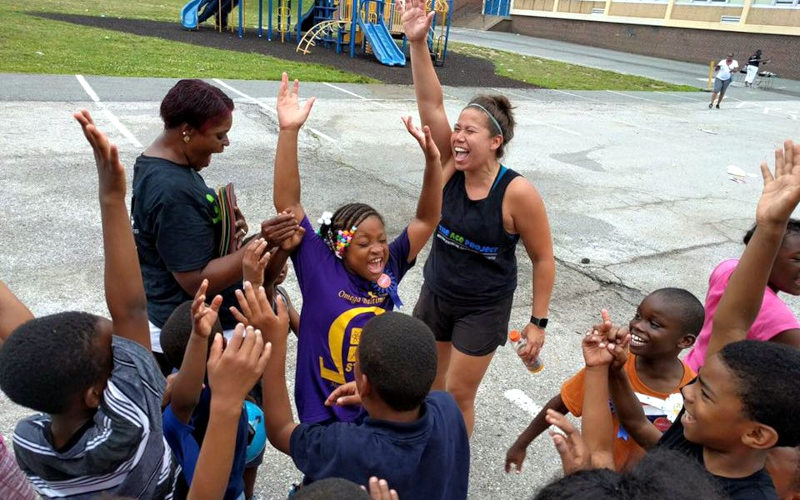
 |
TCB: You and Leah
Friedman co-founded The Ace Project in 2013. How did you two
meet up and what made you start the organization?
SK: Leah
and I initially met when I was working for Friends of CICS Tennis,
and she was working for the USTA-Chicago District. CICS was facilitating
a free tennis camp in Altgeld Gardens, a housing project on the
Southside of Chicago, and it was evident that she and I had similar
teaching philosophies. We both wanted to make tennis as accessible
as possible and create self-sustaining tennis communities. From
there, we had our first meeting at a Starbucks (a joyful memory
I'll never forget) where we discussed our unified vision of growing
tennis and education in underserved communities. |
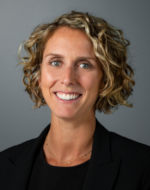 |
 |
 |
TCB: How do you
divide up your responsibilities between Leah and yourself?
SK: Our partnership and the responsibilities we undertake are
really driven by our passion. At our onset, Leah and I looked
to establish a program model that engaged youth, families, and
community members through tennis since we both loved the sport
and understood its value. With my expertise in positive youth
development and her background in junior player development,
we built a framework that included tennis instruction, academic
enrichment, homework assistance, nutrition, life skills, mentorship,
and social-emotional skill-building. Our connection to partners,
such as the USTA and the school district, helped us grow the
impact of The
ACE Project quickly; however, it also required us to make
a decision about our roles as co-founders and the future of the
organization. We decided that, given my experience working with
school staff, I would oversee the day-to-day operations as the
Executive Director; Leah would continue working alongside the
USTA to connect us to new partners and opportunities as an advocate
to the organization. |
 |
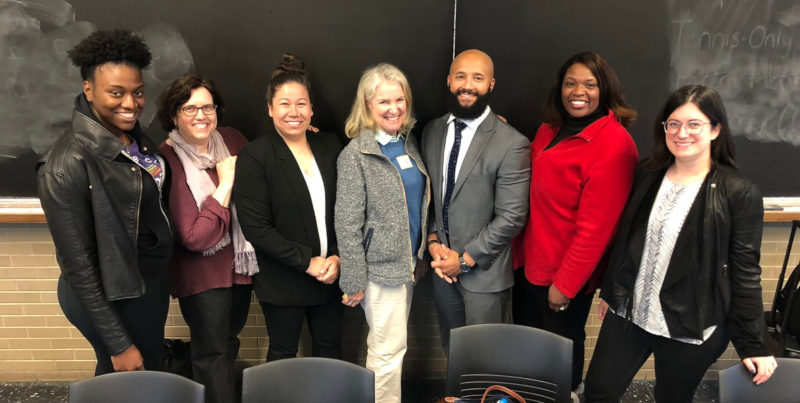
 |
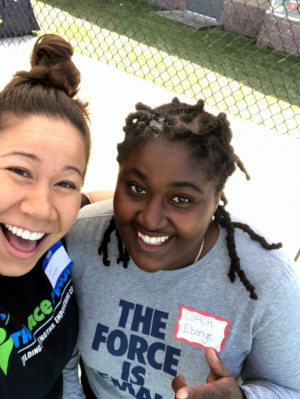 |
TCB: What is
your biggest challenge in running The Ace Project?
SK: The ACE Project has encountered several roadblocks in
our partner cities, whether that be with program delivery, funding,
or partnerships. While these challenges are sometimes significant
and require immediate attention, it's a discovery we made in
looking at the patterns for youth who are struggling to excel
nationwide: there is a lack of effective, sustainable after-school
programs available, particularly in underserved communities.
Without stronger academic performance, opportunities for younger
generations will cease.
In all our partner
schools, test scores fall far below the state average, specifically
in English and math proficiency. |
 |
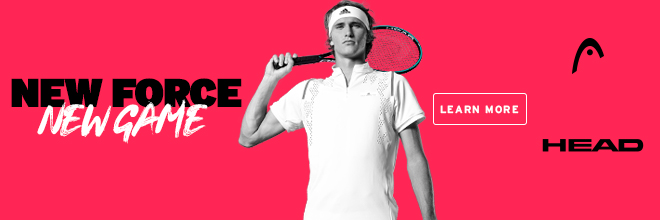
 |
Moreover, students
are making less academic progress year-after-year compared to
students at other schools. This means that even as students graduate
from one grade to the next, they are unprepared for the growing
challenges of the modern world, contributing to an even bigger
achievement gap that creates barriers to future financial self-sufficiency
and professional opportunity. The ACE Project's goal is to ensure
youth have access to resources that help them grow and thrive;
however, this means we need to determine which programs have
the most impact in order to sustain them long-term within the
community.
TCB: What kind
of support are you getting from the US Government?
SK: Though we do not receive any federal grants, we partner with
the State of Illinois to provide nutrition for youth; moreover,
The ACE Project collaborated with the Southwest Organizing
Project and the Logan Square Neighborhood Association to implement
the statewide Parent Mentor Program, which was an overwhelming
success. Our graduated mentors shared their revived passion and
their plans to pursue careers in education, social work, and
community development. The goal of the Parent Mentor Program
is to build leaders in the home, the school, and the community.
Our mentors, who are parents within the school district, are
trained to work alongside teachers in the classroom for at least
200 hours over the year. This program increases the number of
coaches qualified to lead the academic enrichment, social-emotional
learning, and homework assistance aspects of The ACE Project's
programs.
TCB: After Chicago,
Baltimore, and Detroit, what city is next on your list?
SK: The ACE Movement is always evolving; we pride ourselves on
using data and feedback to inform our strategy for programs,
funding, and administration. Last spring, we launched programs
in Detroit after finding the school partners, funders, coaches,
and local leaders necessary to bring our model to life. Next
year, The
ACE Project will
undergo a strategic planning process, which will set a course
for the organization to follow over the subsequent 3-5 years.
Through this exercise, we will better understand how to position
ourselves in other cities. |
 |
 |
TCB: What is needed
to expand The Ace Project nationwide?
SK: The
ACE Project believes
that "it takes a village to raise a child," and we
practice this philosophy by engaging the entire community in
our programs. We recruit and train coaches among a wide range
of parents, teachers, school administration, and other residents.
Hiring coaches from within the community increases the presence
of attentive caring adults. For the adults, it builds new individual
skillsets and boosts the local economy, which is paramount to
our vision of creating self-sustaining chapters. In order to
expand our model nationwide, we need to find active adults who
are looking to make a difference in their respective communities;
these individuals would be responsible for uplifting more local
voices, empowering more leaders, and growing opportunities for
youth. |
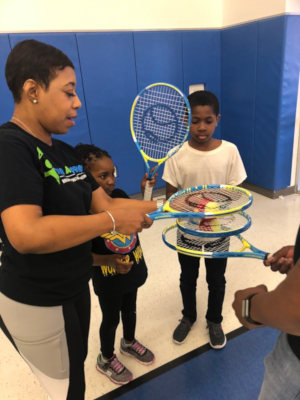 |
 |
 |
Overall, The ACE
Project believes that by reinforcing the relationships between
students, their families, and their communities, we will close
the achievement gap that limits opportunity and success. |
 |

 |
TCB: Do you still
play tennis for fun?
SK: Yes,
absolutely! Once I refocused my energy from winning each match
to playing for exercise, fun, and stress relief, I began to enjoy
the game again. Now, I step on-court with anyone who shares my
passion and hit away.
TCB: What is
your racquet of choice?
SK: In college, I played with the Prince More Performance Precision,
and it took YEARS for me to replace that frame. Years ago, I
finally settled on Babolat Pure Storm and love it! Though, the
new Wilson sticks are enticing… |
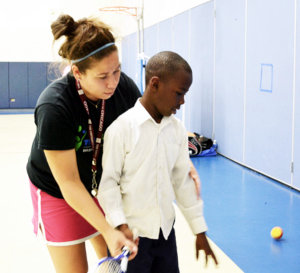 |
 |
 |
TCB: Have you
heard of pickleball? Are you planning to incorporate it into
your programs?
SK: Funny that you mention it! One of our board members (and
a featured pro in your e-newsletter last month), Anne Mache,
ran a few pickleball courts at our summer tennis festival #ReturnTheServe.
TCB: Thank you,
Susan Klumpner. |
 |
Congratulations
to The ACE Project for being our
November 2019 Organization of the Month. |
|











